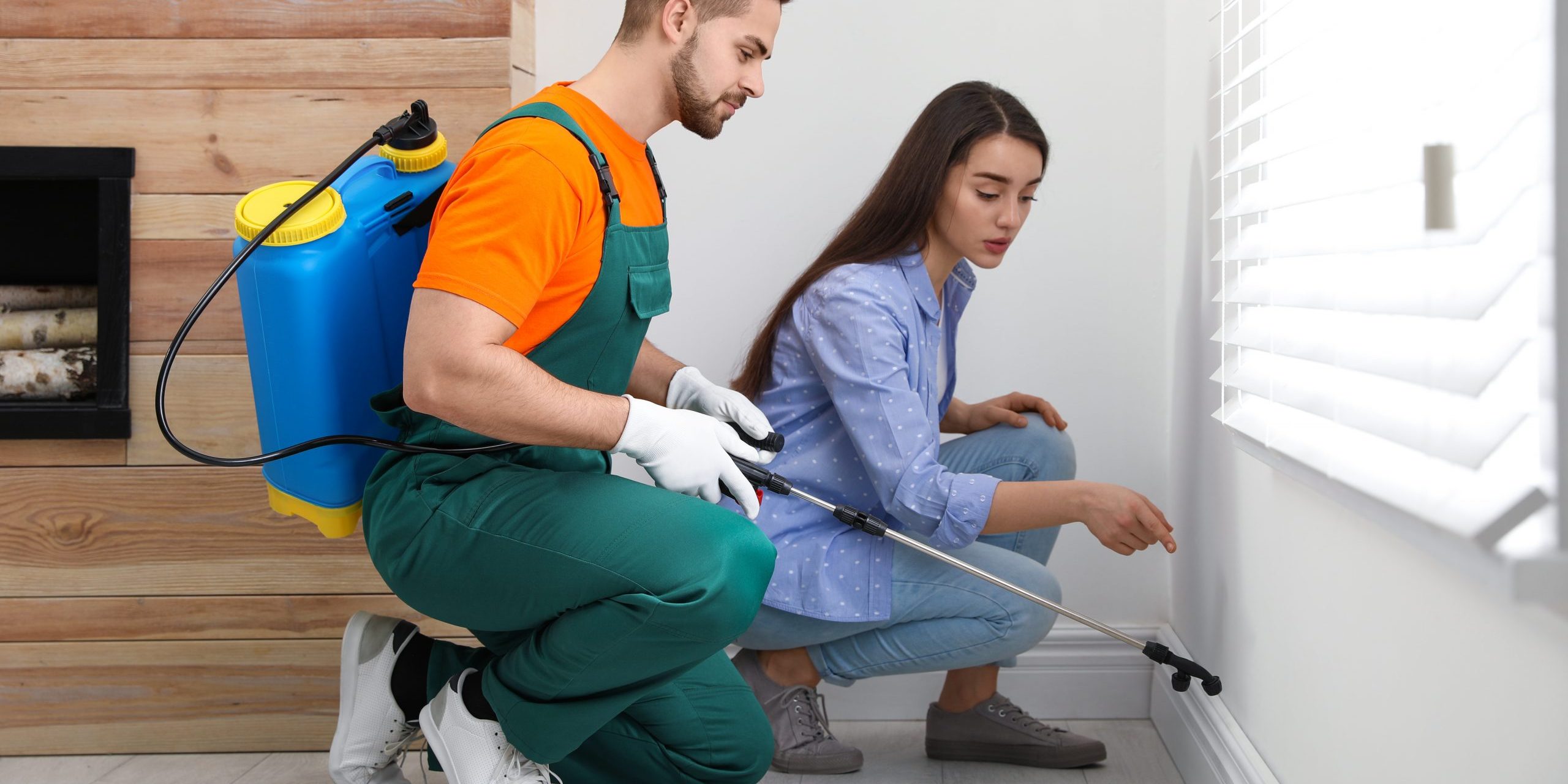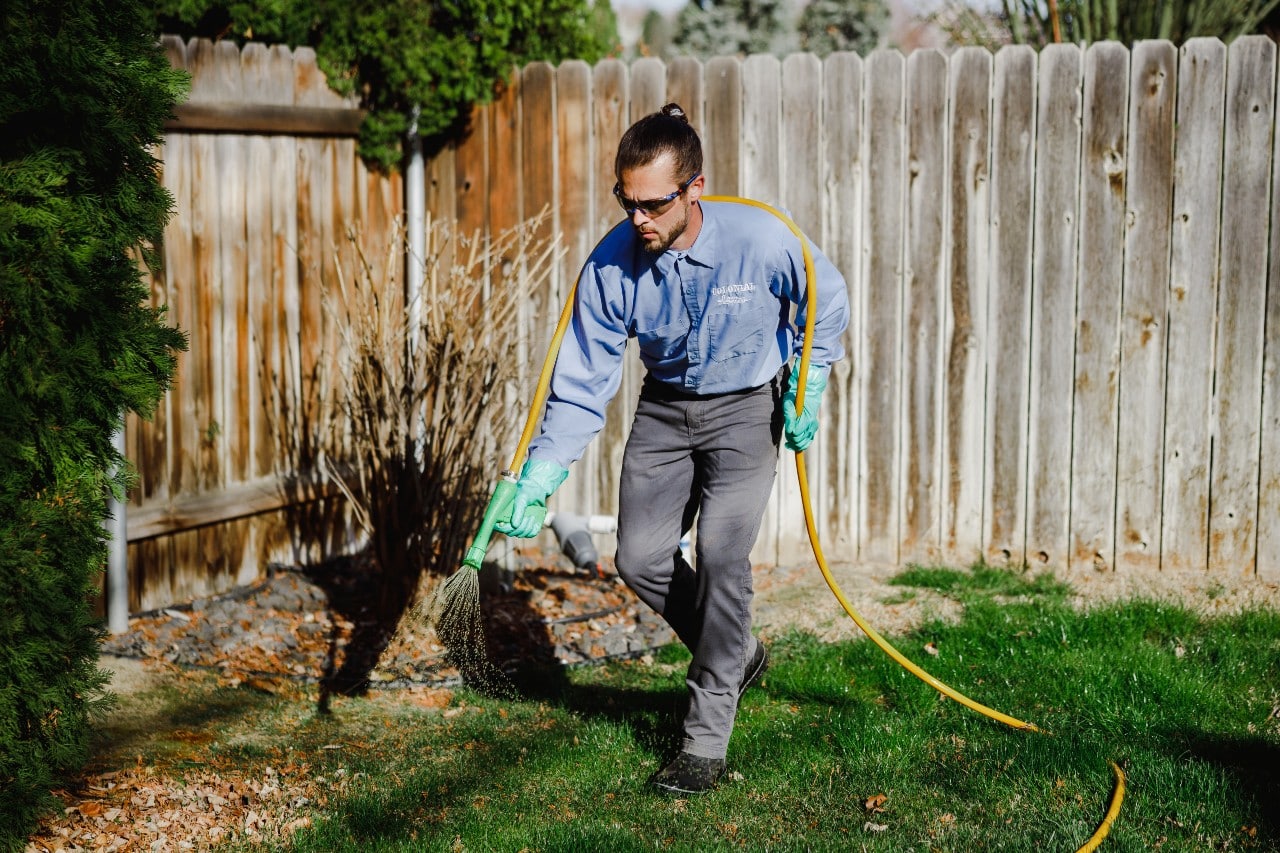Trusted Exterminator Near Me: Your Regional Pest Control Option!
Trusted Exterminator Near Me: Your Regional Pest Control Option!
Blog Article
Professional Insect Control Techniques for Long-Term Outcomes
Professional bug control techniques envelop an extensive approach that begins with a comprehensive examination and assessment, adhered to by precise bug recognition to understand their habits patterns. The execution of Integrated Pest Administration (IPM) concepts, coupled with eco-conscious therapies, creates the cornerstone of lasting parasite removal.
Assessment and Analysis
Upon going into a building for parasite control solutions, the preliminary step is an extensive inspection and assessment to identify the level of the infestation and establish the most effective treatment plan. Specialist parasite control technicians are educated to meticulously examine the facilities, seeking indicators of pest activity such as droppings, nibble marks, nests, or any type of structural damage. They will likewise examine the conditions that may be drawing in bugs, such as food resources, water leaks, or entrance factors.

Insect Recognition and Habits

Moreover, recognizing the habits of the determined insect is essential to executing effective control measures. Recognizing where parasites nest, what they feed on, and their activity patterns can assist pest control experts design approaches to remove them effectively.
Integrated Insect Management (IPM)
Integrated Parasite Monitoring (IPM) methods combine multiple techniques to regulate and stop insect infestations in a lasting and eco-friendly fashion. exterminator. By incorporating methods such as organic control, habitat adjustment, alteration of cultural techniques, and making use of resistant selections, IPM aims to minimize making use of chemical pesticides
One of the vital principles of IPM is the focus on prevention. This aggressive technique includes monitoring insect populaces regularly to find any kind of potential problems prior to they rise. By determining parasite problems beforehand, pest control steps can be applied promptly and properly.
Additionally, IPM advertises using safe parasite control methods whenever feasible. This can consist of employing natural killers of the pests, presenting beneficial bugs, or making use of pheromones to interrupt breeding patterns. By lowering reliance on chemical pesticides, IPM not only shields the environment but likewise aids maintain a balance in the environment.
Environmentally-Friendly Therapies
Implementing eco-conscious techniques in bug control treatments can effectively deal with invasions while focusing on ecological sustainability. Environmentally-friendly treatments concentrate on minimizing the impact of insect control techniques on ecological communities, non-target organisms, and human health and wellness. These approaches often involve the use of natural predators, such as ladybugs or nematodes, to manage pest populaces, lowering the demand for chemical treatments. Additionally, techniques like habitat manipulation, such as adjusting moisture levels or removing food sources, can assist prevent bugs without making use of unsafe materials.
An additional trick element of environmentally-friendly therapies is using natural and naturally degradable items that break down quickly without leaving hazardous residues in the setting. Organic insecticides stemmed from plants like chrysanthemums or neem provide effective parasite control while posturing very little risk to non-target varieties. Employing techniques like heat therapies or pheromone catches can target particular parasites with precision, lowering the general ecological effect of parasite control methods.
Recurring Monitoring and Upkeep
Constant monitoring and maintenance are necessary elements of effective pest control monitoring. Ongoing surveillance plays an important duty in ensuring that pest invasions are detected early and managed promptly. Routine examinations by trained experts are needed to recognize any type of indicators of parasite activity, analyze the effectiveness of previous treatments, and make modifications to the bug control strategy as needed. By keeping track of bug populaces with time, pest control professionals can track fads, expect potential concerns, and apply safety nets to bed bug heat treatment decrease the danger of future invasions.
In enhancement to tracking, upkeep methods are vital for lasting insect control success. This includes applying correct hygiene measures to get rid of potential food and water resources for insects, sealing off entrance indicate stop pests from going into the premises, and attending to any kind of structural concerns that could promote pest invasions (Exterminator DC). By including ongoing tracking and upkeep into an integrated parasite management method, organizations can guarantee a pest-free atmosphere and guard their building against expensive damages and wellness risks
Final Thought
To conclude, utilizing expert parasite control techniques such as complete inspection and assessment, precise parasite identification and understanding of their habits, integrated pest management strategies, environmentally-friendly treatments, and recurring tracking and upkeep are essential for achieving long-term cause insect control. By carrying out these techniques, people can successfully take care of bug problems and maintain a pest-free environment in a sustainable manner.
Report this page